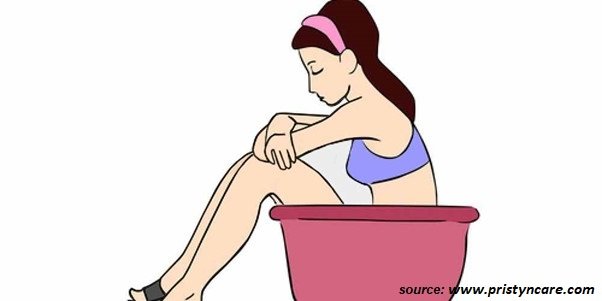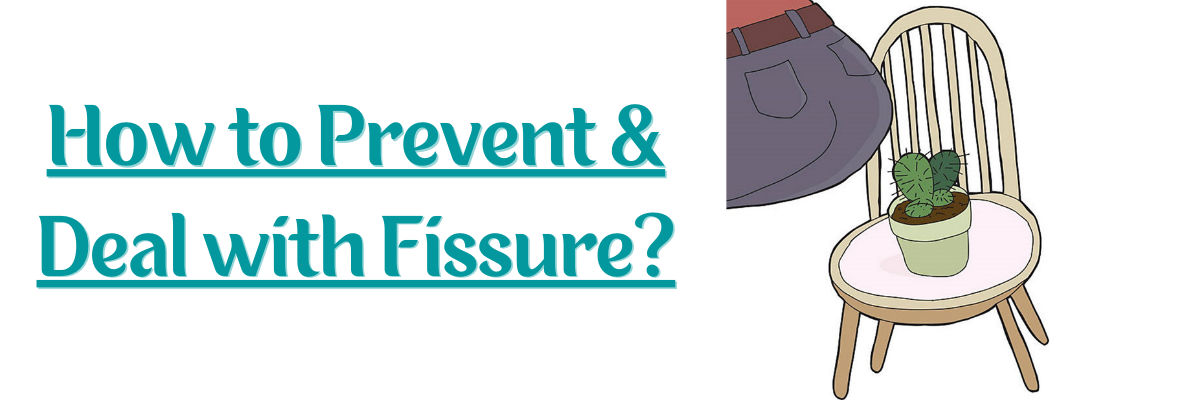You will surely be concerned if you experience pain, bleeding, or itching in your anal area.
To begin with, these are all unpleasant sensations. Second, they can be frightening, leaving you wondering, "What is going on?"
Many patients assume hemorrhoids are to blame, but Dr. Dipesh Thacker of Akshar Hospital, a highly experienced Ayurvedic surgeon in Bhuj, Gujarat, says anal fissures are another common cause of symptoms like this.
Anal fissures are a small linear tear in the anal skin called anoderm. They are prone to itching, bleeding, as well as causing more pain than typical hemorrhoids. A doctor can help you receive an accurate diagnosis and the correct treatment if you have these symptoms.
Around 60% of anal fissures heal within a few weeks. You may require surgery in a chronic situation.
Ways to prevent anal fissure
- Eat a balanced diet

Passing large, hard, or dry feces might create an anal fissure if you are constipated. Constipation can be avoided by having a balanced diet that includes fruits and vegetables. Also, do not cut out all fat from your diet; fat and oil are good lubricants that keep your digestive system running smoothly. Remember to drink sufficient water to keep yourself hydrated.
- Exercise

Lack of physical activity can cause constipation. To keep your digestive system working and in good shape, exercise for at least 30 minutes each day. Aim for 150 minutes each week or more.
- Don't ignore your need to go.
If your body tells you that it is time for a bowel movement, don't put it off. Waiting too long or too often causes these signals to weaken. The longer you keep it in, the dryer and harder it becomes, making it more difficult to pass.
- Follow healthy bowel habits.
You can ease constipation and pressure on the anal canal with these suggestions. Follow these methods regularly to reduce your chances of developing a painful anal fissure:
- Allow ample time to pass bowel movements comfortably when using the restroom. However, don't stay on the commode for too long.
- When passing stools, don't strain.
- Keep the anal region dry.
- After each bowel movement, gently clean yourself.
- If you are suffering from persistent diarrhea, seek medical help.
What to do in case you have a fissure?
Fortunately, there are many remedies available to aid in the healing of fissures.
- Consider the petroleum alternative.
Lubricating your anal canal before each bowel movement can help protect it. A dab of petroleum jelly applied into the anus about 1/2 inch deep may help the stools pass without inflicting any further injury.
- Scratching isn't a good idea.
Anal fissures can be uncomfortable and painful, but scratching the area with sharp fingernails can aggravate the problem and create a vicious cycle of discomfort.
- Get rid of those extra pounds.
You are more prone to sweat if you are carrying a lot of weight. Perspiration in the anal area irritates the skin and causes fissures to heal more slowly.
- Sitz bath

Many people benefit from a "sitz bath," which involves soaking in warm water several times a day. It relaxes the muscles of the anal sphincter, stimulates blood flow, and aids in the healing of the fissure over time.
Fissures do not necessitate medical care unless they are severe. The most important thing to remember when dealing with fissures is not to put them off indefinitely. Get your fissures checked if they don't heal within two weeks. You can consult Dr. Dipesh Thacker, an expert Ayurvedic surgeon in Bhuj, Gujarat, for the best treatment options.
Frequently Asked Questions:
What can be done to avoid an anal fissure?
Ans: Maintaining the anal area's dryness, Using mild soap and warm water, carefully cleanse the anal area. Constipation can be avoided by drinking enough water, consuming fiber foods, and exercising regularly. Treating diarrhea as soon as possible. If your child has the condition, you should change their diapers often.
Questions and Answers:
How can I naturally prevent anal fissures?
More fiber (from food or supplements), more water, and the use of a stool softener can help with bowel movements. When you have a fissure, this can help relieve the pain of having a bowel movement and may even prevent future fissures. A sitz bath can help to alleviate discomfort.
What prevents anal fissures from healing?
A fissure may fail to heal due to scarring or muscle spasms in the internal anal sphincter muscle. Surgery usually includes cutting a small section of the internal anal sphincter muscle to reduce pain and spasms and allow the fissure to heal.
What is the best way to treat an anal fissure?
If you take precautions to keep your stool soft, such as increasing your fiber and fluid intake, anal fissures can heal in a few weeks. Soaking for 10 to 20 minutes in warm water many times a day, especially after bowel motions, can help relax the sphincter and encourage healing.
What can be done to keep an anal fissure from reopening?
Regularly take sitz (salt bath) baths, which entail sitting for 20 minutes in a shallow bath of warm water. Instead of toilet paper, use baby wipes. After each bowel movement, take a shower or a bath. Every day, drink six to eight glasses of water.



